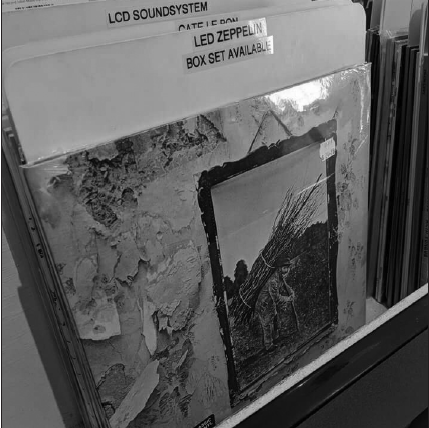For most, backmasking is associated with Satanism and rock music. It is the “devil’s music” after all.
Backmasking is a recording technique in which sound or a message is unintentionally recorded backward onto a record that is meant to be played forward, like normal. This technique has been unintentionally (or perhaps, intentionally) used by well-known artists from the past and present.
The Beatles
We can thank the Beatles for moving the technique of backmasking into the mainstream. When they were making their album “Rubber Soul” in 1965, they decided to release a single that featured a backmasked line. The idea came to John Lennon when he was “stoned out of his head.” Toward the end of their single “Rain,” which was released in 1966, you can hear the first line of the song in reverse.
This only entangled them further into the urban legend.
Rumors began spreading in 1969 that Paul McCartney had died and was replaced by a lookalike with claims of clues of his death in lyrics and album artwork. It was argued that Lennon’s mumblings in between the songs “I’m So Tired” and “Blackbird” sounded like, “Paul is a dead man. Miss him.”
The band’s press office refuted this, calling it “a load of (rubbish).”
To poke fun at the rumors, the band created a backmasked message in the 1995 recording of a 1977 demo of Lennon’s “Free as a Bird,” which was released 15 years after his death. Included at the end of the track is Lennon’s voice saying, “Turned out nice again,” which allegedly sounds like the late Beatle saying his own name.
The Devil or just coincidence?
There are many theories out there as to how this phenomenon occurs, ranging from the Devil’s doing to pure coincidence.
Audio engineer Evan Olcott’s theory of coincidence states that these messages just somehow happen, but it doesn’t explain why this is happening so frequently. Another argument of his is that it’s nearly impossible for artists to record lyrics that are comprehensive when played both forward and backward. Many agree with this.
And of course, there is the theory favored by many Christians in the ’80s that the Devil is responsible for this strange occurrence. Preachers everywhere claimed that Satan was possessing the minds of singers to promote acts of evil such as Satanism, drugs and sex. Strangely enough, this theory mirrors the lives of these rock stars, but many deny any purposeful acts of backmasking.
Bands can’t be intentionally slipping these subliminal messages about the devil and sex to corrupt our minds, can they?
Maybe they are because this is still happening today with popular artists such as Imagine Dragons, Eminem and The White Stripes.
Led Zeppelin
Arguably the most popular backmasked track is Led Zeppelin’s “Stairway to Heaven.”
Anti-rock zealot, minister Michael Mills, was the first to call out the band for incorporating phrases such as, “Here’s to my sweet Satan,” in 1981. Mills contended that our subconscious could hear these words and coerce us into committing hedonistic acts.
My only question to Mills’ argument is why was he playing Led Zeppelin in reverse in the first place?
In response to the accusations, Led Zeppelin’s label, Swan Song, responded with, “Our turntables only play in one direction.”
Notable mentions
Among “Stairway to Heaven” are some other classic hits that some say contain secret messages when played backward. The opening verse to The Eagles’s “Hotel California” when played in reverse is said to eerily sound like, “Yes, Satan organized his own religion,” among other messages from Satan.
But not all backmasking relates to Satanism.
Toward the end of Queen’s hit, “Another One Bites the Dust,” where Freddie Mercury scats the fade-out, you can hear, “It’s fun to smoke marijuana,” when played backward. For Mercury, this was probably true.
With all of these hits that we know so well, it makes you question whether our brains are playing tricks on us or if our favorite rock legends are really trying to speak to our subconscious.
